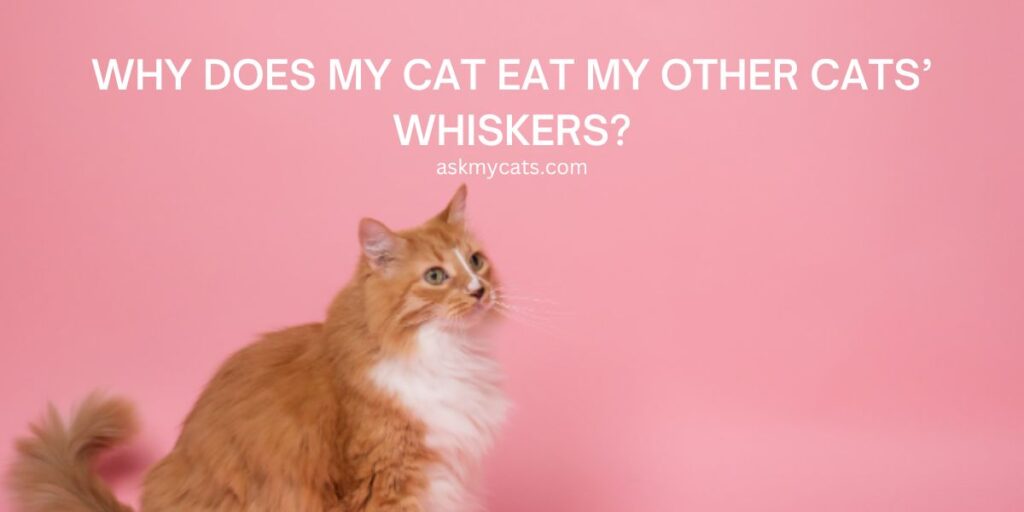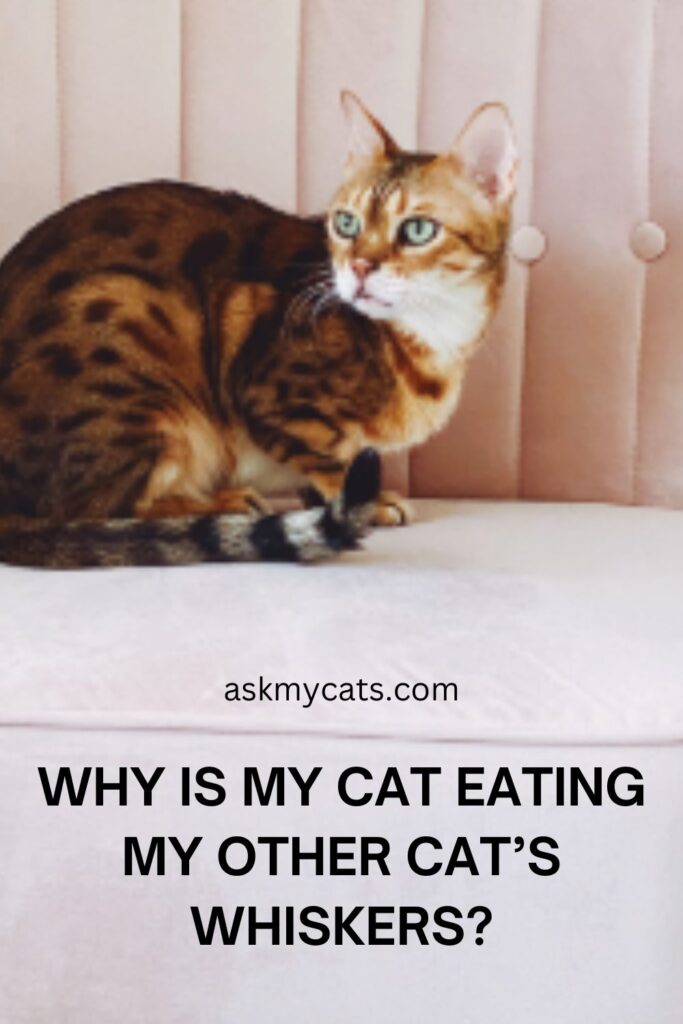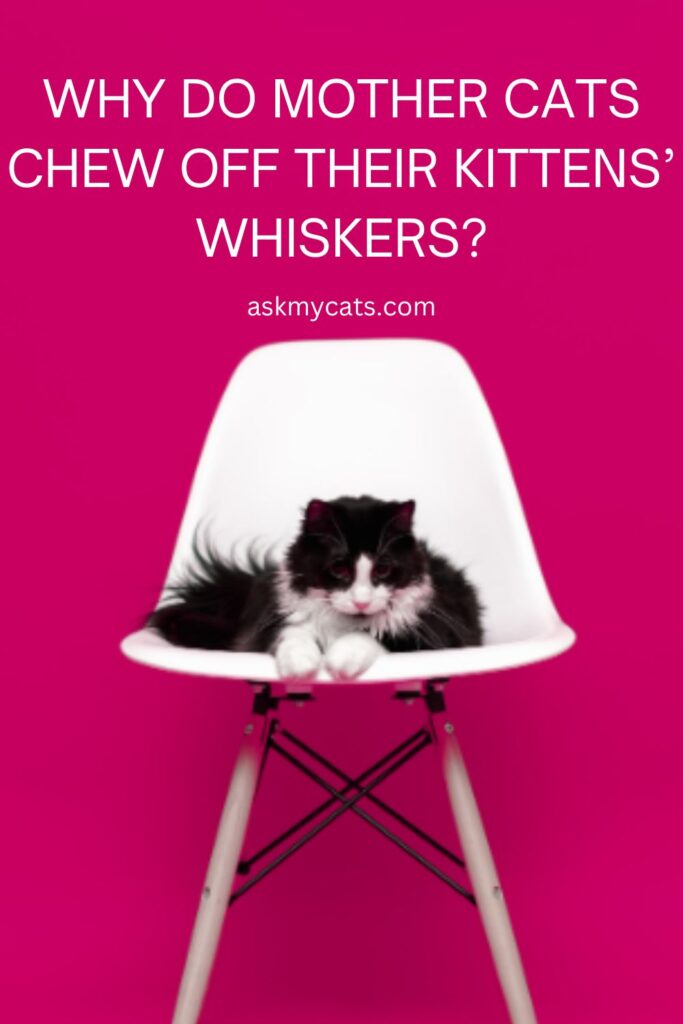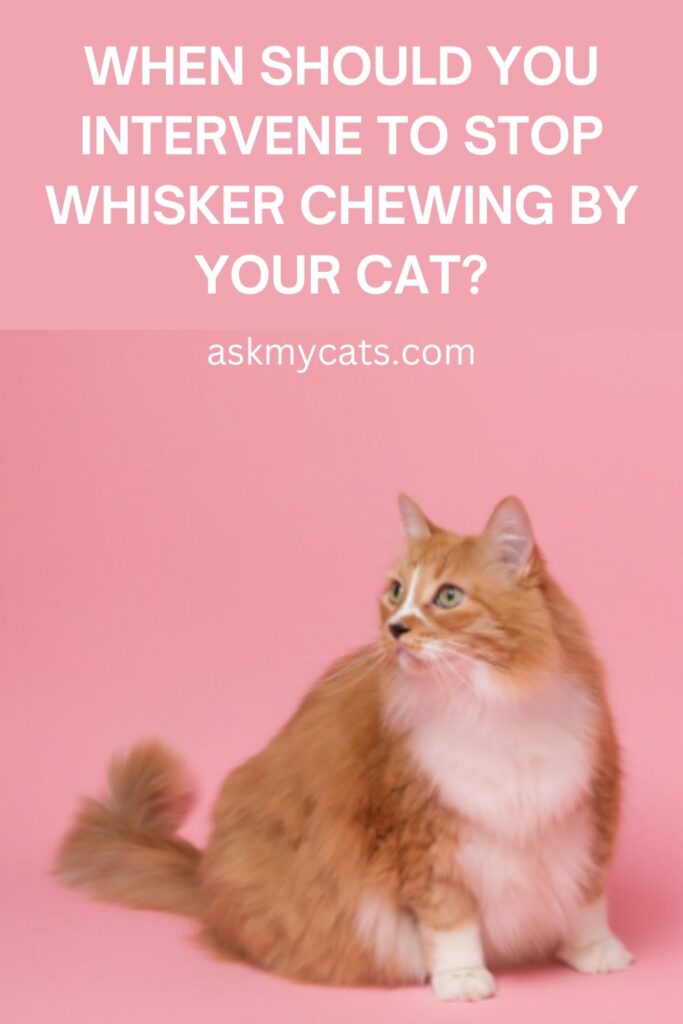If you have more than one cat, and especially if all or some of them are still kittens, you may sometimes notice that the whiskers of kittens are chewed off by their littermates or by the older cats.
Whisker chewing in cats may happen as a result of excessive grooming, accidental rough play, stress, or sometimes, intentional chewing by the mother cat to prevent the curious kitten from going out of her sight – whiskers help them navigate, and so, if the kitten’s whiskers are chewed off, it will be a little disoriented and not take risks out of curiosity.
While sometimes, whisker chewing can be passed off as normal behavior that doesn’t need intervention, some other times it may signal distress among one or more of your cats.
Then, you will need to intervene and help soothe your cats. This article will help you figure out when your cat’s whisker chewing behavior may be a cause for concern.


Give Your Cat the Perfect Day
Get the Free Ebook!
Why Is My Cat Eating My Other Cat’s Whiskers?

If your cat is eating your other cat’s whiskers, it could be either due to excessive grooming or rough play.
Cats, and especially kittens and younger cats, tend to groom each other. This grooming may sometimes become a little aggressive – not in an angry way, but more in an overexcited way.
When your kitten is excitedly and aggressively groomed by its littermates, sometimes, it may have its whiskers chewed off by other cats.
Another thing to observe is how rough or gentle your cats are with each other when they play. If they enjoy roughhousing and being wild and adventurous, then it is very likely for them to bite each other’s whiskers off accidentally.
Sometimes, the older male cat in your house may try to chew off the whiskers of the younger cat, especially if the younger cat is also male.
This may be a sign of dominance or control. Your older male cat may be trying to communicate to the younger male cat that he is the alpha in this “territory”.
Why Do Mother Cats Chew Off Their Kittens’ Whiskers?

A mother cat may chew off her kittens’ whiskers because of one or more of the following reasons:
1 – To prevent the kitten from wandering off
Kittens are curious and adventurous. From the moment they open their eyes, they want to move around.
So, as soon as they learn how to walk, they will try and run off in every possible corner. They want to explore their surroundings.
But this can be dangerous for kittens. Exploring may soon turn into fatal accidents if a kitten wanders off onto the road or on a stovetop or other such risky places.
That is why a mother cat will always try to keep her kittens close to her during the weaning period.
If some kitten is too adventurous and keeps wandering off frequently, the mother kitten may chew off its whiskers to make it stop.
With chewed whiskers, the kitten will feel a little disoriented and face problems navigating. This will make the kitten stay close to its mother.
2 – Out of distress
If the mother cat is distressed, she may be more aggressive toward her kittens.
This may sometimes reflect in her grooming, where she aggressively licks her kittens, and in the process, she chews off a couple of whisker strands of some of her kittens.
3 – To establish dominance
Did you know that mother cats also bop their kittens on their heads and hisses or scold them if they misbehave?
If some naughty kitten does not obey its mother even after being bopped on the head or being hissed at by her, the mother cat may resort to chewing off the whiskers of the kitten.
This is merely to establish dominance and let the naughty kitten know that it has to obey her, or there will be unpleasant consequences.
This dominance is not out of aggression but rather out of concern. The mother cat does not want her kittens to get into trouble because of their curiosity and wandering.
4 – Excessive grooming
Sometimes, a mother cat may groom one kitten more than the other. This may sometimes lead to the kitten being excessively groomed to lose some whiskers.
Excessive grooming may accidentally cause the mother cat to chew off some whiskers in the process of licking and cleaning the kitten.
Interesting Read: Why Does My Cat Eat Fur Off The Floor?
When Should You Intervene To Stop Whisker Chewing By Your Cat?

You may not always need to intervene and put a stop to whisker chewing.
However, if you observe one or more of the following signs, you need to immediately interfere and correct the behavior of your cats:
1 – When there are bite marks near the muzzle of your cat
If you observe bite marks near the muzzle or cheek of one of your cats, it means that the other cat has become aggressive toward it.
This is when you need to observe and put a stop to this aggressive behavior by your cat.
2 – When the cat or kitten seems so disoriented that it stresses it out
If a lot of the whiskers have been chewed off, it may make your cat very disoriented and dizzy. This may sometimes lead to behavioral issues in your cats such as stress, aggression, or fear.
In such a case, you need to separate your two cats and only let them play again when the whiskers of the former cat have regrown to a functional length.
3 – When the mother cat is being aggressive toward her kittens
It is very common for a stressed-out mother cat to become aggressive toward her kittens. In such a case, whisker chewing will only be one of the many behavioral issues in the mother cat.
In that case, then, it will be safer to separate the mother cat from her kittens temporarily and soothe her.
Once she is calm, reintroduce her to her kittens.
Must Read: What Happens If You Cut A Cat’s Whiskers?
Frequently Asked Questions
Why does my cat pluck my other cat?
Cohabitating cat aggression can take many different forms and have several reasons. Inter-cat violence in a home can be influenced by a variety of factors, including fear, anxiety, medical conditions, an unsuitable introduction of a new cat, and a lack of resources.
Why does my cat bite the fur off my other cat?
Bonded cats may engage in charming demonstrations of affection, such as grooming, for one another. They spend a lot of time making sure the other cat is perfectly clean by biting and licking each other, as well as by grooming each other’s fur. This style of grooming indicates that your cats are pals, which is a positive indication.
Final Words
One cat chewing another cat’s whiskers may seem strange and concerning. But in cats, it is a common practice.
What helps, however, is to know when you need to intervene and put a stop to this whisker chewing, and when you can pass it off as a harmless behavior.
When you see your cat chewing the whiskers off your other cat, simply observe. If there are any bite marks or any signs of excess stress or aggression, then intervene.
If they are simply playing with each other or grooming each other, you don’t need to worry about one odd whisker strand being chewed accidentally.
Interesting Read: Why Is My Cat Losing Whiskers On One Side?
Interesting Read: Why Are My Cat’s Whiskers Curling?
